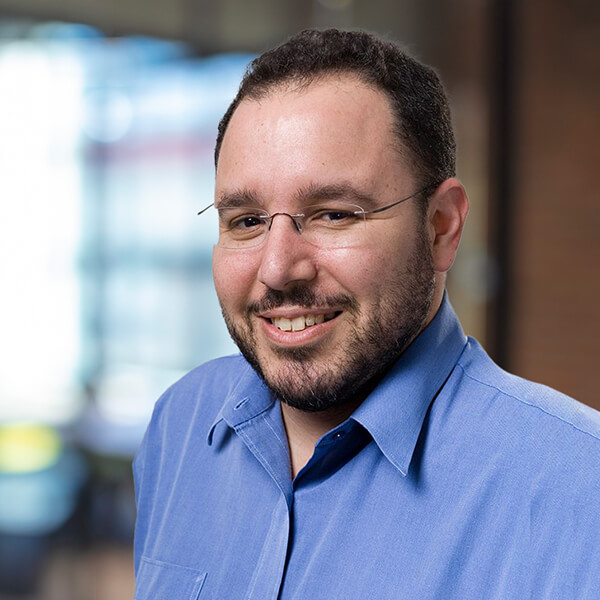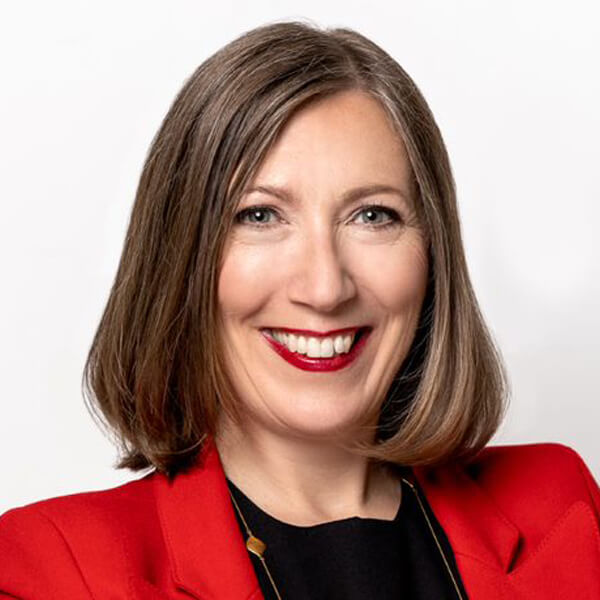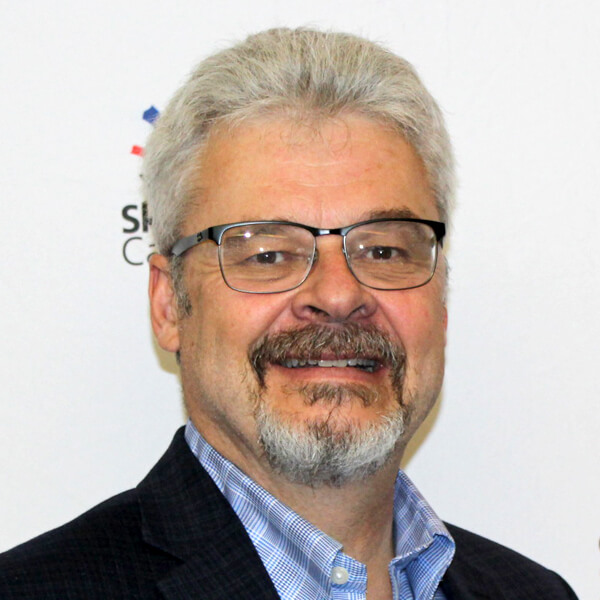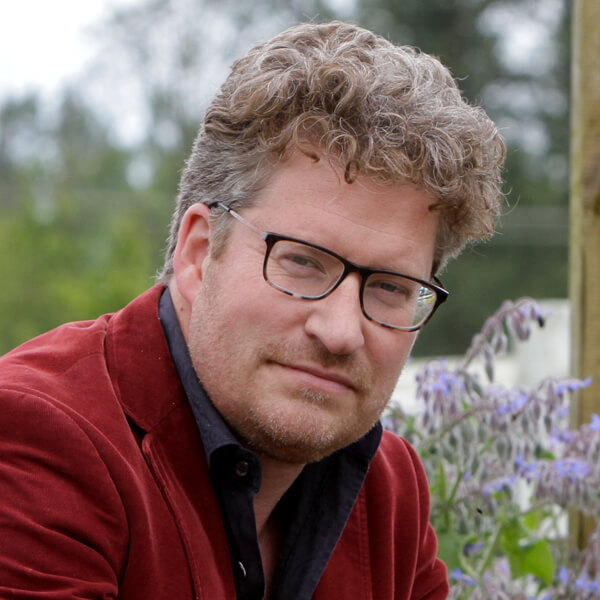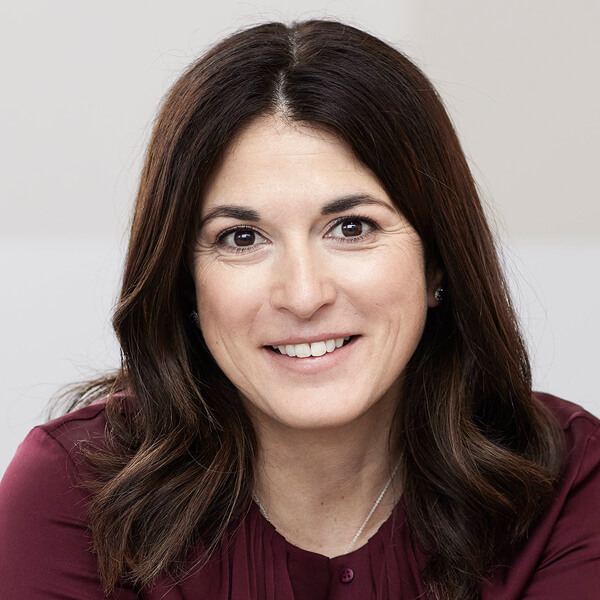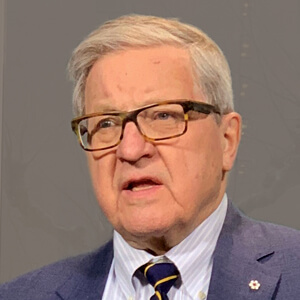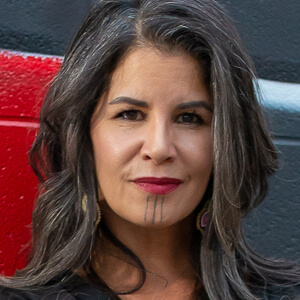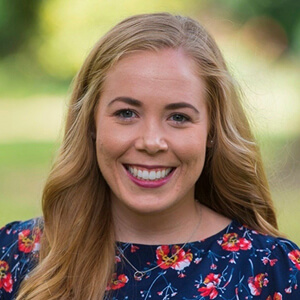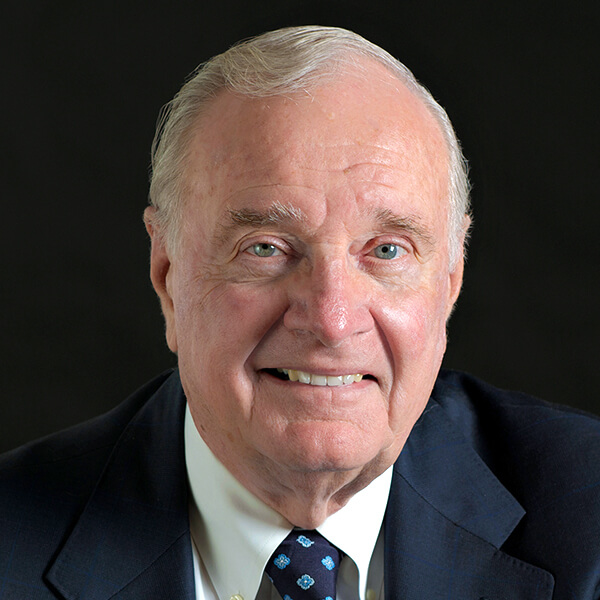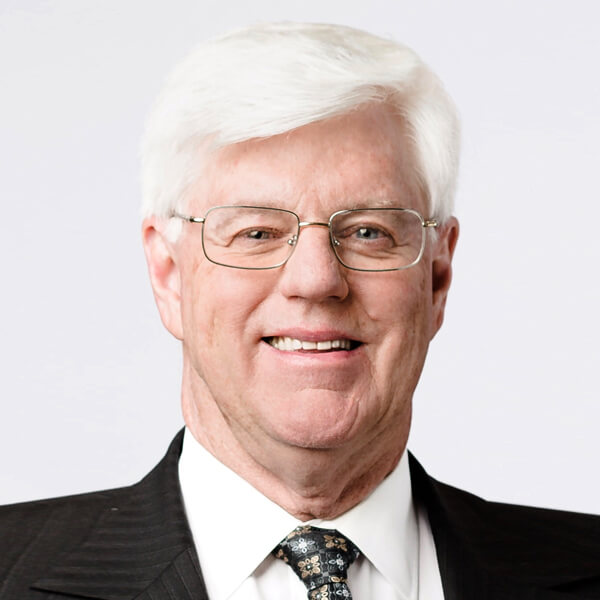
Bright Future
Podcast Series
In this series, The Conference Board of Canada brings you the connections that make us stronger as individuals, as organizations, and as a country. Hear from senior-level executives from our biggest institutions and leaders from Canada and around the world. For us, leader isn’t a title, it’s a way of acting in the world. You’ll hear leaders who are working to create a bright future.
39
Episodes
77,870
Downloads
(as of October 17, 2024)
Latest Episode
Episode 38
Sebastien Dallaire on Public Opinion Polling
It is estimated that the most voters in history will head to the polls this year. In addition to policies and leaders’ debates, polls are a critical element of understanding election developments. However, not all polls are created equally. In this episode, Sebastien Dallaire shares his perspective on the state of public opinion polling today, its future, and how changes in habits are impacting public opinion polling.
October 17, 2024 • 37-min listen
Episode Details
2024 has been called the year of democracy. It is estimated that more voters than ever in history will head to the polls this year. Democratic elections are happening in at least 64 countries plus the European Union—representing a combined population of about half of the people in the world.
At the time of recording, Canada is not facing a national election, but that may change at any point. Beyond the policies and leaders’ debates, the other thing that goes along with elections is polling. But while polling is a critical element of understanding how elections are shaping up, not all polls are created equally.
To help us understand the ins and outs and wins and losses for public opinion polling is Executive Vice President of Leger, Sebastien Dallaire.
In this episode, Sebastien shares his perspective on the state of public opinion polling today, where he sees the industry going in the future and how changes in telecommunications and citizen habits are impacting public opinion polling.

Sebastien Dallaire
Executive Vice President, Léger
October 17, 2024 • 37-min listen
In late 2023, a dream team of former elected officials, mayors and chief planners, Indigenous leaders, designers, builders and developers, affordability advocates, and finance and insurance experts came together to create a Task Force for Housing and Climate. This group released their Blueprint for More and Better Housing in March 2024.
This episode we welcome Housing and Climate Task Force Co-Chair Don Iveson.
We discuss why addressing Canada’s housing crisis should also include consideration of the climate crisis. We hear how over a hundred recommendations coalesced into a report that is both bold and grounded. We explore why this challenge motivated Don and his colleagues on the Task Force to try and set the floor for climate and housing discussions.
Additional resources:
- Blueprint for More and Better Housing (Task Force for Housing and Climate)
- A Blueprint for Housing AND Climate (Civic Good)
- Work in Progress: How Immigration Can Address Labour Shortages in Residential Construction (CBoC)
- Canada’s Housing Affordability Challenge: Plenty of Questions, Some Answers (CBoC)
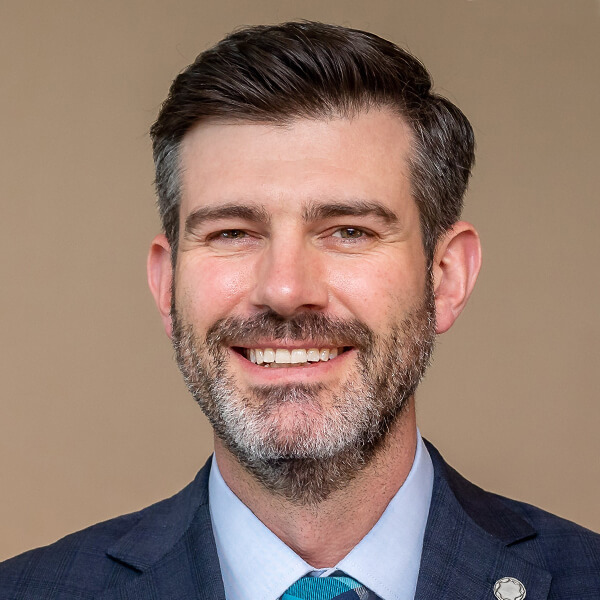
Don Iveson
Co-Chair, Task Force for Housing and Climate
April 23, 2024 • 55-min listen
During Black History Month in Canada, we celebrate the many achievements and contributions of Black Canadians and their communities. We highlight Black Canadians’ role in making Canada the culturally diverse, compassionate, and prosperous country it is. We also acknowledge the work that remains to be done in addressing anti-Black racism in our society.
This episode we welcome Dr. Denise O’Neil Green. For over 30 years, Dr. Green, a published author and award-winning expert has applied her visionary approach to equity, diversity and inclusion, anti-racism, organizational change and transformational leadership to organizations.
We explore the evolution of the role of diversity leader throughout her career and note the challenges that persist today. Dr. Green provides advice on the skills and traits to look for when recruiting diversity officers and offers guidance to candidates considering taking on diversity, equity and inclusion roles.
We discuss Canada’s ongoing journey to address anti-Black racism and how projects like the 100 Accomplished Black Canadian Women Initiative help to spotlight the many contributions of Black leaders.
Related reading:
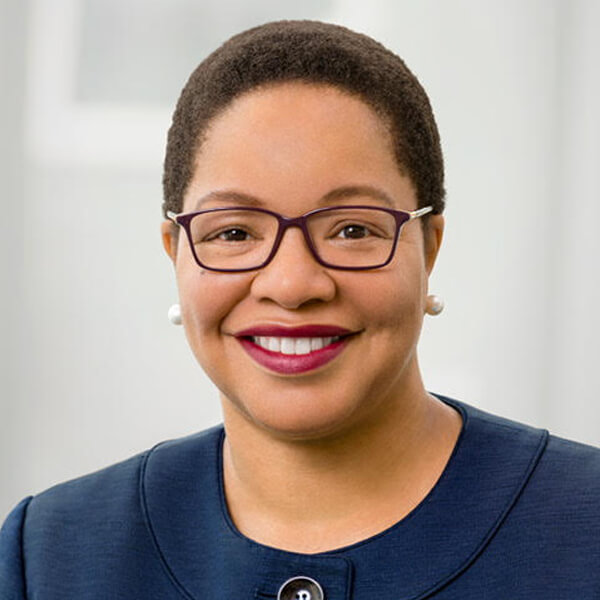
Dr. Denise O’Neil Green
President and Principal Consultant, Denise O’Neil Green Consulting
February 13, 2024 • 53-min listen
When Joshua Gans and his co-authors released their book Prediction Machines in 2018, they were writing about a topic that seemed quite niche. At this time, machine learning was just starting out. In the last year, the speed at which artificial intelligence has advanced has surprised almost everyone.
In this conversation, we hear how the analytical framework that he and his colleagues developed helps to sort through the hype. He argues artificial intelligence is best thought of as a prediction machine. You’ll hear why he’s optimistic that artificial intelligence will be able to help people remove some of the drudgery from some jobs, but at this time, doesn’t seem likely to take over full jobs. He’ll share how understanding artificial intelligence as an advance in predictive statistics will help leaders assess how artificial intelligence may or may not be useful.
September 6, 2022 • 45-min listen
Canada’s labour force isn’t growing fast enough to keep up with the aging population. On one hand we have a labour supply challenge. But, on the other hand the workers we do have don’t always have the skill sets that we need today, but particularly into the future.
My guests this episode are both actively working to reshape our skills development and labour market preparedness for students today so that they can fill the labour market demands of tomorrow. We explore how educational institutions are evolving to better equip students for workplaces and how better relationships between employers, educators and the K-12 system are starting to reshape how skills are taught and how people can gain a better understanding of the career options that are available to them
August 29, 2022 • 52-min listen
Today’s generation feels maligned by the press and often ignored by politics. Priced out of home ownership, dealing with the growing impact of climate change, and criticized for not appreciating that life is hard and always has been—life doesn’t seem fair for young people in Canada.
But my guest this episode is bringing evidence, passion and a clarity of perspective to reveal the real ways in which life truly is harder for today’s younger generation. How hard work just isn’t paying off the way it did for previous generations—particularly for those who count themselves in the baby boom generation.
Through the Generation Squeeze think and change tank, Dr. Paul Kershaw is shedding light on the concrete ways that our fiscal realities are skewed against younger Canadians. We discuss the disparities between the perceptions of seniors and the challenges faced by young people today. We dive into the topics that exemplify these gaps in experiences and lived opportunities between generations.
Intergenerational solidarity is a central theme of Generation Squeeze, and Dr. Kershaw highlights the organization’s success in fostering cross-generational understanding of these critical issues. We explore the importance of involving seniors in creating a more thoughtful approach to policy and financial structures.
Learn more:
- Generation Squeeze
- Gen Squeeze’s Hard Truths Podcast
- Inequality in Canada: Separating Fact from Fiction (CBoC)
- 2023 Federal Budget Analysis (CBoC)
May 30, 2022 • 36-min listen
OpenAI’s ChatGPT and other large language model AI have brought the long-standing promises of artificial intelligence to fruition.
ChatGPT has taken the world by storm, accumulating millions of users worldwide. However, this tool and others like it are being met with trepidation and fear by many AI pioneers.
To help us make sense of these developments and their implications is Valérie Pisano, President and CEO of Mila, the Quebec Institute of Artificial Intelligence.
In this episode, you’ll hear why AI leaders are calling for a temporary pause on further AI development. We also consider the implications of these tools for workplaces and workers. Additionally, we delve into the unique opportunity we have in the coming months to set a path for responsible AI development, leveraging Canadian ingenuity and a deep respect for humanity.
Learn more:
- Read about MILA’s impact
- “Digital Occupation Pathways: From Vulnerable Jobs to Rapid-Growth Careers” (CBoC)
- The Conference Board of Canada’s Innovation Report Card (CBoC)
May 16, 2022 • 41-min listen
The history of humanity is a history of movement.
Today, movements of people from one place to another are subject to severe political and social constraints.
Our guest this episode has spent a good portion of his life creating supports for people who are fleeing human rights or environmental disasters.
Dr. Lloyd Axworthy joins us to share what he and others at the World Refugee & Migration Council see as the great need for reform in our treatment of refugees in Canada and around the world. We discuss how Canada’s generally positive political and social approach has helped our country take the lead in creating new and innovative ways to support refugees.
We also discuss how the global crisis of displaced people is putting increasing pressure on governments and international institutions to respond more effectively in the coming years.
Learn more:
- A Renewed Call to Action (World Refugee & Migration Council)
- WRMC Resources on Repurposing Assets for the Forcibly Displaced
- North and Central American Task Force on Migration
September 20, 2022 • 35-min listen
Professor Tracy Bear is a well-known researcher focusing on Indigenous knowledge, resilience and embedding research in true partnerships with communities. In 2021, she was appointed director of the McMaster Indigenous Research Institute.
Hundreds of thousands of Canadians got to know Professor Bear through her role as academic lead of “Indigenous Canada”—a Massive Open Online Course (MOOC) designed to help Canadians understand the history of Indigenous Peoples. Since its inception in 2016, the course has grown from twenty thousand to more than four hundred and sixty thousand learners and has been named the most popular online course in Canada.
In our conversation Tracy talks about how Canadians need to face the uncomfortable truths of the relationship between Canada and Indigenous Peoples. We also need to understand that the impacts of these uncomfortable truths continue to impact Indigenous families and communities to this day.
Ultimately, you will hear that Tracy is optimistic that greater understanding of Indigenous ways of knowing will help us all move forward and enrich our lives.
If you’re someone affected by residential schools and you need help, the number for the National Indian Residential School Crisis Line is 1-866-925-4419.
Learn more:
- Take the Indigenous Canada course
- Explore the work of the McMaster Indigenous Research Institute
- Learn about Walls to Bridges
- Learn more about reconciliation: National Centre for Truth and Reconciliation
June 21, 2022 • 36-min listen
In May 2020, in the depths of the pandemic, Canadian Nicholas André G. Johnson broke new ground as Princeton’s first Black valedictorian. In over 274 years, no other Black student had been recognized in this way by the institution, making Nicholas a ground breaker and as we’ll hear—a mentor to other Black professionals forging their path through academic and professional settings.
Nicholas talks about the experience of being the first Black valedictorian and the intense media attention he received from both American and Canadian press. He shares how his passion for technology and for building connects to what he sees as his life’s work—creating value in the world.
We also discuss how organizations can engage Black professionals to bring their authentic selves into the workplace. Conference Board of Canada research found that Black Canadians had the highest rate of feeling like they needed to adjust their identity in a corporate setting. A concerning finding since almost half of the Black respondents said they needed to engage in code switching to fit in.
Finally, Nicholas shares his advice for following your passions, building a community, and connecting with others to make a difference in the world.
Read our research—Bridging the Gap Between Identity and Social and Emotional Skills: Black Canadians’ Perspectives of Social and Emotional Skills in the Workplace.

Operations Research PhD Candidate, MIT; Researcher in Residence, Bain Capital Crypto
June 7, 2022 • 32-min listen
The war in Ukraine brought the country and its people to the forefront of international attention. Every day more and more people are seeking to help Ukrainians to end the war and to recover from the damage that is being inflicted.
Dr. Marnie Howlett has dedicated her life to understanding—and helping others understand—how Ukraine and its people view their country and their unique position as a borderland between Europe and Russia.
She joins us this episode to provide a deeper understanding of how Ukraine’s history, its complexities and its realities on the ground have helped to shape the war and are fueling the Ukrainian resistance.
May 10, 2022 • 37-min listen
The ongoing war in Ukraine has shaken the foundation of international relations. In many ways this war feels like déjà vu—a land war in Europe, a larger power attempting to overtake another smaller country for its own gains. But in other ways this war is unprecedented. Professor Jane Boulden joins us this episode to help make sense of the impact of the war in Ukraine on the international order, on the United Nations, and on how this war has eroded the rules-based order that we thought governed international relations.
Check out all of our analyses on the war in Ukraine.
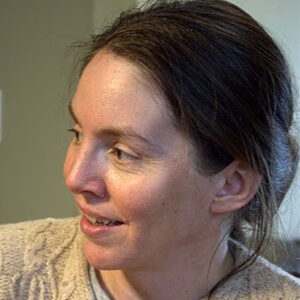
Professor, Royal Military College of Canada; and Adjunct Professor, Queen’s University
April 13, 2022 • 42-min listen
The Russian invasion of Ukraine sent shockwaves around the world and Canada is not immune. Join the Conference Board of Canada’s economic forecasting team as they discuss how this conflict will impact Canadian producers, government, and consumers. They will also discuss opportunities for Canada to build on its special relationship with the people of Ukraine to play a bigger role in post-war rebuilding.
Check out all of our analyses on the war in Ukraine.
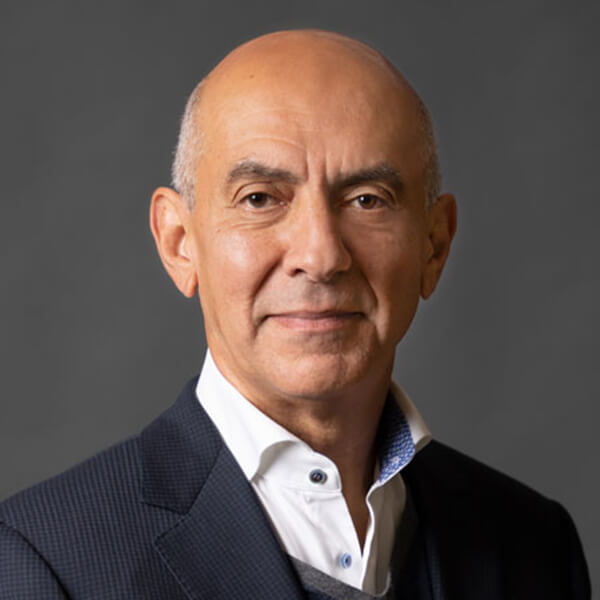
Chief Economist, The Conference Board of Canada
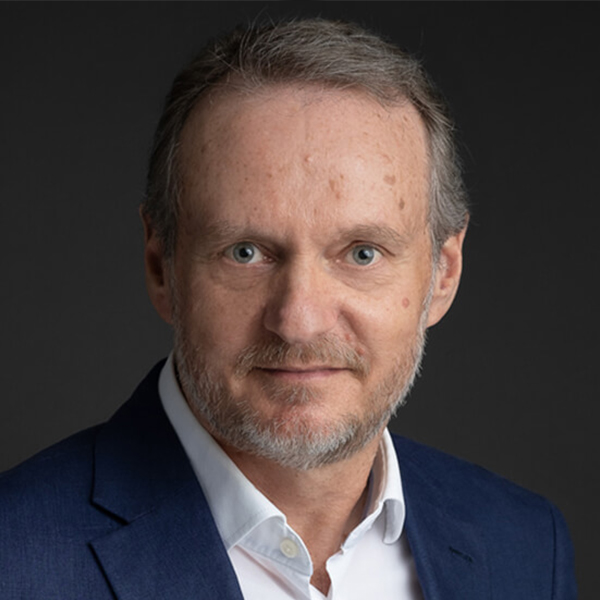
Director, Economic Forecasting, The Conference Board of Canada
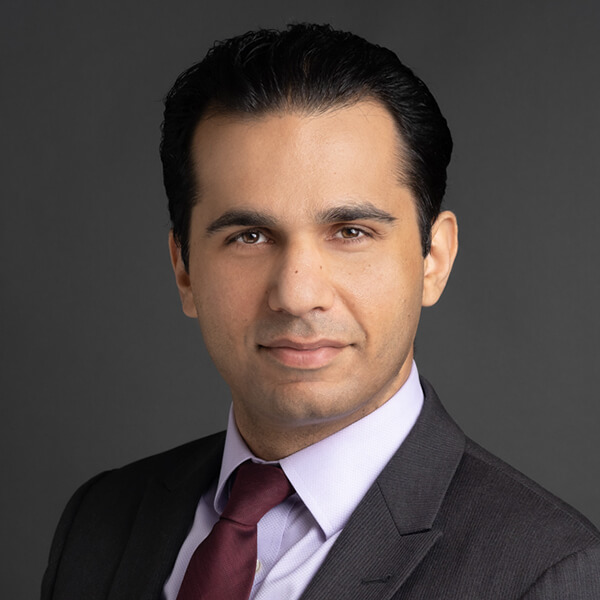
Director, Economic Innovation, The Conference Board of Canada
March 30, 2022 • 36-min listen
Decisions about our communities are made based on data. That data comes from many places, but these days, a lot of it comes from what we do and the decisions we make. Over the course of the pandemic, our actions changed dramatically. Having local, current data meant decision-makers were able to target their reactions to the communities that needed them most.
But could we have done better? Do our new sources of information play well with our old sources? Rupen Seoni, Chief Revenue Officer, Environics Analytics, joins us this episode to talk about how governments and organizations can use new and old data sources to make better decisions.
Learn more:
- Watch Rupen talk more about Environics Analytics’ research: MobileScapes in Your COVID Response Toolkit.
- Read about Environics Analytics helping the City of Toronto understand people’s movement behaviours: Toronto Lockdown Shopper and Recreational Movement.
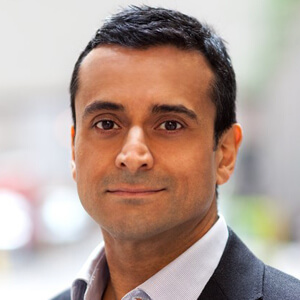
Chief Revenue Officer, Environics Analytics
June 29, 2021 • 23-min listen
More than five years after the Truth and Reconciliation Commission issued its final report, progress on the 94 calls to action has been slow. But are Canadians starting to finally understand the truth of how Indigenous Peoples have been treated in this country?
Reconciliation is a long journey. Knowing the truth is just the first step.
The head of that commission, The Honourable Murray Sinclair, joins us this episode to talk about new laws in Canada that recognize Indigenous rights, the next phase in his storied career, and why he’s optimistic that things can be different than how they were.
If you’re someone affected by residential schools and you need help, the number for the National Indian Residential School Crisis Line is 1-866-925-4419. Additional mental health supports can be found at Crisis Services Canada.
Learn more about reconciliation at the National Centre for Truth and Reconciliation.
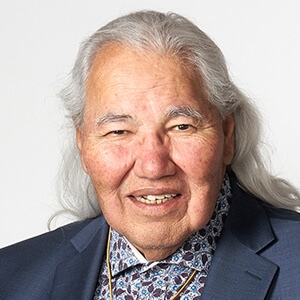
Former Chair, Truth and Reconciliation Commission
June 21, 2021 • 43-min listen
What do you do when your technology trips you up more than it helps you out? In 2014, the Canada Mortgage and Housing Corporation found itself with a collection of legacy technologies that were getting in employees’ way and limiting the organization’s impact.
Initially, they thought it was just a technology issue. Turns out, they needed more than just a contractor to move them to the cloud—they needed a partner who could help them find a new approach.
This episode, Amélie Lecompte, CMHC’s VP and Deputy Chief Information Officer, and Mark Lambert, Canada Federal Public Service Lead at Accenture, share the journey they took to overhaul CMHC’s technology and their discovery that tech change is also people change.
Read more about the CMHC case study.
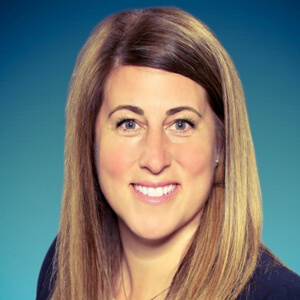
VP and Deputy Chief Information Officer, CMHC
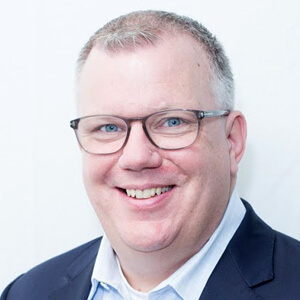
Canada Federal Public Service Lead, Accenture
May 4, 2021 • 24-min listen
“Comply or explain” disclosure requirements were intended to improve women’s representation at the top of Canada’s major organizations. Five years later, the ratio of women on corporate boards has improved, but is it thanks to the disclosure requirements? Dr. Susan Black, CEO of The Conference Board of Canada, and Rob Davis, Chief Inclusion & Diversity Officer at KPMG in Canada, talk to us about the pace of change for women’s representation and opportunities to increase diversity in Canadian boardrooms.
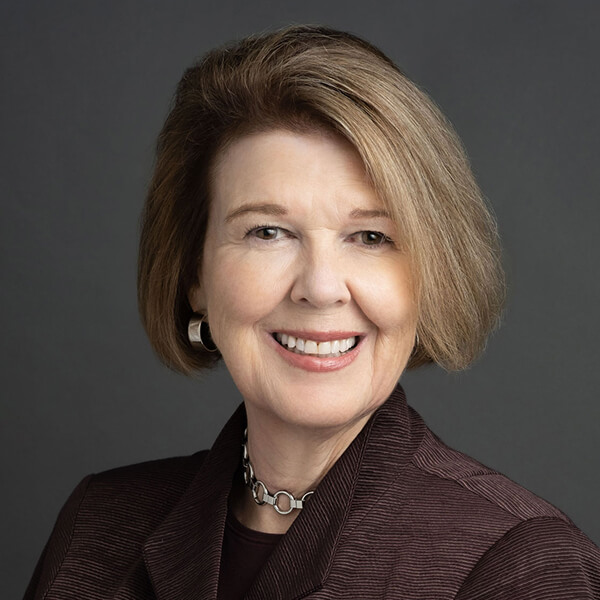
CEO, The Conference Board of Canada
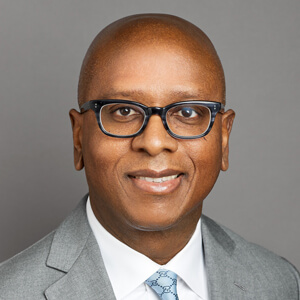
Chief Inclusion & Diversity Officer, KPMG Canada
April 14, 2021 • 33-min listen
Refugees bring very few “things” with them when they arrive in Canada, but they don’t arrive empty-handed. They bring experiences, perspective, passion, and fresh ideas.
When Tareq Hadhad left war-torn Syria and settled in Nova Scotia with his family, he brought a delicious path to peace, prosperity, and community. The founder of Peace by Chocolate joins us to talk about Canada’s immigration and refugee system, entrepreneurship, and being a newcomer in a small town.

CEO and Founder, Peace by Chocolate
March 17, 2021 • 38-min listen
Policies need to make sense with how people and businesses already operate. Otherwise, they won’t work. Knowing how people make decisions can help policies make sense to the people they’re supposed to support. A misplaced nudge can sometimes feel like a shove.
Policies work better when they line up with how people already make their decisions. Sasha Tregebov, Director of Behavioural Insights Team’s Canada office, joins us to talk about how creating the right policies can help us to recover better.
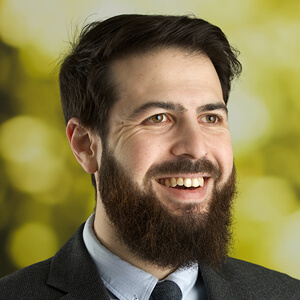
Director, Behavioural Insights Team Canada
February 23, 2021 • 32-min listen
Environmental sustainability is one of the most pressing concerns of our time. And while this is something most of us can agree on, turning that consensus into action is more difficult. If we want to make progress on our climate targets, we need to work smarter. One tool policy-makers and organizations are turning to is psychology. If we know how people come to their decisions, we can design policies that help them make good decisions on their own.
Our guest this episode felt compelled to put psychology to use in sustainability; she sees it as a behavioural problem as much as an environmental problem. Dr. Jiaying Zhao, Canada Research Chair in Behavioural Sustainability, talks with us about how to nudge people to better decisions.
Learn more about Dr. Zhao’s research lab.

Canada Research Chair in Behavioural Sustainability
February 9, 2021 • 29-min listen
Using data to make decisions—either by a person or by a machine—has become a big part of our lives over the past couple of decades. Our lawmakers have tried to keep up, but innovation will likely always outpace bureaucracy. And, in a world where most of us have clicked “I have read the terms and conditions” even when we haven’t, the implications of out-of-date privacy laws could become serious.
In November, the federal government introduced the Digital Charter Implementation Act to try to better protect Canadians and their privacy. This update to Canada’s privacy laws is overdue, but will it do what it sets out to? Shaun Brown, lawyer and privacy expert, helps us understand the proposed new laws and what they might mean to you.
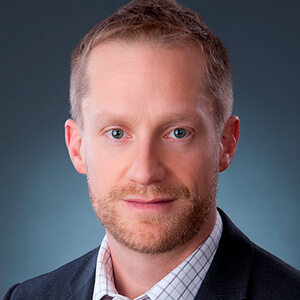
Partner, nNovation LLP
January 19, 2021 • 33-min listen
November 11 is a time of reflection. A time to remember the struggles and sacrifice that have gone into building this country. Margaret MacMillan, bestselling author and professor of history, reminds us in her new book, War: How Conflict Shaped Us, that we are all shaped by war.
They say we can either learn from our history or be doomed to repeat it. And while history never really repeats itself, according to Margaret, it does echo. Understanding history helps us to spot the parallels today—and avoid the pitfalls of the past.
For Margaret, it is a moment to consider how we think about war itself, and the ways in which it has changed us as nations and as individuals.
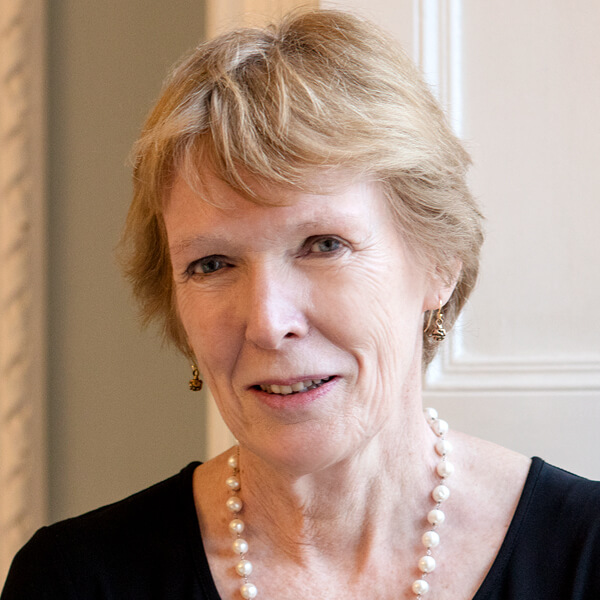
Professor of History, University of Toronto
November 10, 2020 • 30-min listen
As a journalist in the ‘90s, John Stackhouse spent many years living overseas meeting and interviewing interesting people. Many of them were his fellow Canadians. He discovered that expats are keen to help their home country. When he returned, however, he found people were concerned over the number of people leaving the country—the perceived “brain drain.”
John says that’s the wrong way to think about it. Canada’s diaspora is not a brain drain, it’s brain circulation. As people wear their maple leaves around the world, they’re building networks of insight and goodwill for Canada. But Canada doesn’t seem ready to take advantage of that network. There’s no system for connecting with that network; no way for organizations here to ask their foreign compatriots what’s happening in their local market.
John recognizes the importance of networks and points out some prominent ones that are reshaping our society for the 21st Century. He says the global experience our expats are gaining will be critical in the coming decades. We just need a strategy for Canada’s “11th province” to join the Confederation.
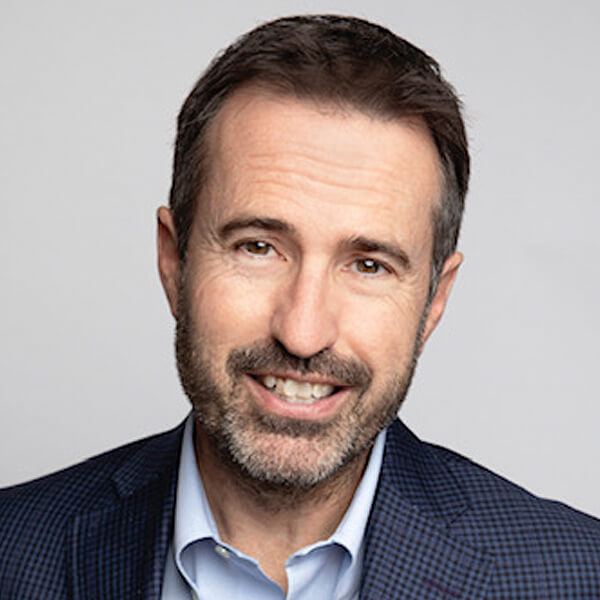
Senior Vice President, RBC
October 20, 2020 • 40-min listen
How can we keep the second wave from turning into a second lockdown?
Viruses spread when people spend time in close quarters, so lockdowns are good at slowing their transmission. But they come with a cost—a reality we know well, and don’t want to repeat.
Dr. Susy Hota is an infectious disease physician and medical director of infection prevention and control at University Health Network. She joins us this episode to talk about what we’ve learned since the outbreak began. She’s concerned that our pandemic fatigue may be contributing to the disease’s resurgence.
The mental and physical health consequences of the pandemic and efforts to curb it are very real. As is the economic damage. Dr. Hota says we need to remain vigilant and focused on controlling the pandemic to tame the second wave. To avoid a second lockdown, we need to make better use of the tools we already have: distance, hygiene, and masks.
We talk about how the pandemic has taught us what is important, as well as how it exposed areas that need attention. She says that we should focus on our common goal to get through the coming winter: short-term pain for long-term gain.
Follow Infection Prevention and Control Department at University Health Network on Twitter @ipacuhn
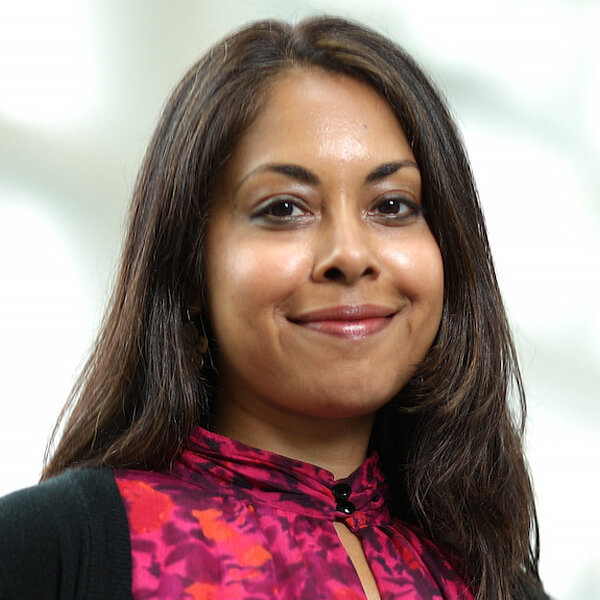
Infectious Diseases Specialist and Hospital Epidemiologist, University Health Network
October 6, 2020 • 31-min listen
Technology has been affecting how we make a living since we first started using tools. Never before, though, has technology changed as quickly as it does today. As artificial intelligence becomes more common in our everyday tasks, we can expect even more disruption: No longer will a human be the smartest entity in the room.
This disruption goes beyond just how we work. According to this episode’s guest, the traditional “learn, work, retire” career path is dead.
Futurist, writer, and entrepreneur, Sinead Bovell founded WAYE—Weekly Advice for Young Entrepreneurs—in 2018 to help youth prepare for the digital world they are coming of age in. Already, there is a gap in the skills people have and those organizations need. As technology advances, that gap will only increase. Sinead says the COVID-19 pandemic has shown that our digital infrastructure in not sustainable. We need people with diverse skill sets to tackle our wicked problems, and systems that allow us to continue learning new skills.
She’s brought this up at the UN and to the U.S. Chamber of Commerce and has written about it for The Globe and Mail, Vogue, and WIRED. In this episode of Bright Future, she talks to us about how people can prepare for artificial intelligence in their own jobs, the importance of diversity in technology, how governments and schools can be ready for advanced tech, and the most important skill we’ve all been practicing already: adaptability.

Futurist, writer, and entrepreneur
September 29, 2020 • 32-min listen
About 15 years ago, then-Prime Minister Paul Martin announced the Kelowna Accord. It was an agreement intended to close the gap between Indigenous and non-Indigenous peoples, and it was ground-breaking for modern politics in terms of consultation and collaboration with Indigenous groups.
Mere days after the announcement, however, parliament was dissolved and leadership of Canada’s government changed hands. The accord was enacted, but as a shell of its original vision.
The Right Honourable Paul Martin is still working at it though. In 2008, he founded the Martin Family Initiative to help bridge the gap in standards of living. The Initiative works with Indigenous groups to bring Indigenous knowledge together with evidence-based methods of teaching and learning. He talks with us about the importance of entrepreneurship to Indigenous people, what he has learned from the Initiative, and why it’s important that kids get a good start to life.
September 15, 2020 • 34-min listen
Canadian businesses have been scrambling to find ways to stay afloat since the beginning of the pandemic in March. Government programs have helped, but they can’t last forever. We’ve all had to adapt to whatever “normal” was as we progressed through lockdown. As our businesses incrementally reopen, they are tasked with the challenge of being both safe and profitable.
Our guest this episode is well versed in both the business side and the government side. The Honourable John Manley, former Deputy Prime Minister of Canada, talks to us about getting Canada back to business. He shares his perspective on the response by Canadian governments and businesses, as well as a caution on the deficits the federal government has had to incur. He’s optimistic about the resilience he’s noticed in Canada and Canadians and sees many lessons we can carry with us into the future.
September 8, 2020 • 27-min listen
It’s back to school season, but many families are uneasy this year.
The suddenness of school closures last March had parents—and schools—scrambling to keep kids engaged and learning. We simply weren’t ready to be that nimble. What have we learned since then?
These are the types of questions that keep this episode’s guest busy. Paul W. Bennett, author, education policy researcher, and founder and director of the Schoolhouse Institute, has been talking about the cracks he’s noticed in our country’s education systems to everyone he can. His upcoming book, The State of The System: A Reality Check on Canada’s Schools, outlines some of his recommendations for reforming the Canadian school system. In this episode, he reflects on what we learned in the early days and how he sees an opportunity to move Canada’s school system closer to communities, teachers, and parents.
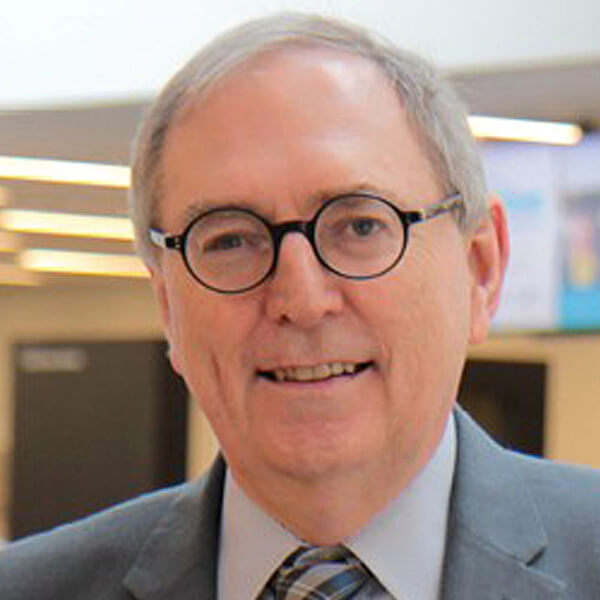
Director, Schoolhouse Institute, and Founding Chair, researchED Canada
September 1, 2020 • 31-min listen
This past June, the Parliamentary Black Caucus issued a statement calling on Canadian governments to take five specific steps toward reducing the harms caused by systemic racism.
Greg Fergus, MP for Hull–Aylmer and chair of the Parliamentary Black Caucus, joins us to talk about what he hopes the statement will achieve. We discuss the importance of having—and understanding—good data to know what is really happening and what communities need help. We talk about the opportunities he sees for Black business and community leaders to improve live for all Canadians, and what’s holding us back.
But it will take work. The five calls in the statement will not fix racism. They’re just a step on the path.
Learn more:
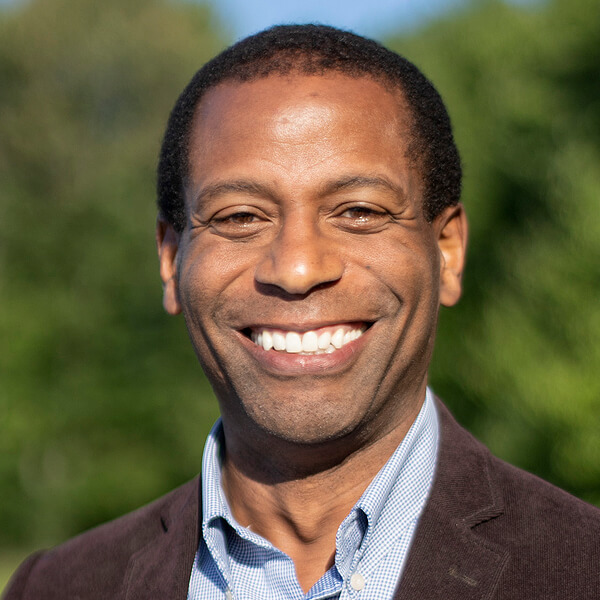
MP, Hull–Alymer and Chair of the Parliamentary Black Caucus
August 11, 2020 • 35-min listen
As peaceful protesters around the world have taken up the chant of Black Lives Matter, the push to address systemic racism in Canada has opened the eyes of many to some of the hurdles Black people in this country face. The conversations we’re having today are the same ones Black activists were having in the 1970s. The information, the stories, the solutions are all there. Waiting for people to listen.
Our guest this episode wants you to listen. And she wants you to understand and think about your own bias. Dr. Hadiya Roderique, writer, lawyer, and diversity advocate, wants to support actions over symbolism. She’s dedicated herself to creating more inclusive and diverse organizations. She talks to us about how recruiting strategies are only a good start, what people can do to better understand race, and how organizations can become more inclusive.
Learn more:
- “Black on Bay Street,” The Globe and Mail
- “The Case for Black Joy,” Flare
- “Why Are There Still So Few Lawyers on Bay Street,” The Globe and Mail
- So You Want to Talk About Race, Ijeoma Oluo
- The Skin We’re In, Desmond Cole
- How To Be an Antiracist, Dr. Ibam X. Kendi
- Me and White Supremacy, Layla F. Saad

Writer, lawyer, and diversity advocate
August 4, 2020 • 37-min listen
As we enter the recovery, many people are wondering if they can get back in the air. Airlines are investing in new equipment and developing protocols to try to provide a safe environment. But the global nature of the industry means airlines—and their passengers—all need to do their part to keep everyone safe. When you get into the details, things can get incredibly complicated.
Duncan Bureau, senior vice-president of sales and distribution at Etihad Airways, talks about what the airlines industry is doing to make flying safe and why he’s sure the industry will bounce back.
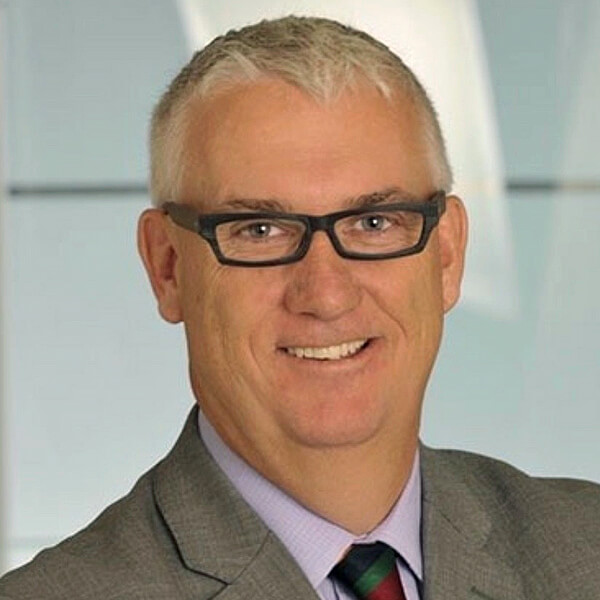
Duncan Bureau
Senior VP, Global Sales and Distribution, Etihad Airways
July 28, 2020 • 31-min listen
As the pandemic spread around the world, normal life shut down to shelter people. In its wake, millions were left unemployed. As regions start to relax their restrictions, many people are returning to their jobs or have found new ones. But many are still looking.
This episode’s guest has published articles and books on career development and has been involved in a number of award-winning career development projects. Norman Amundson, UBC professor emeritus, advocates for hope during this emotional roller coaster. He joins us to talk about the importance of finding purpose, of being ready to take advantage of opportunities when they come, and how career advisors can evolve to help in the changing job market.
He also shares his tips for those dealing with a layoff.
Learn more:
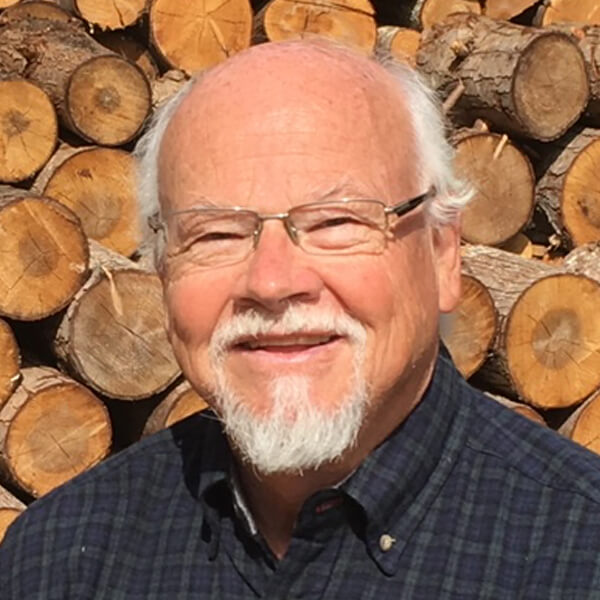
Professor Emeritus, University of British Columbia
July 21, 2020 • 30-min listen
We need a vaccine for COVID-19. There have been many advancements in helping people recover, but the surest way to get back to a place where we can shake hands with strangers again is a vaccine.
And the race is on. Labs around the world have been working hard to understand this virus, develop a vaccine, and get it through the various stages of testing to be sure it is safe.
Our guest this episode is Dr. Volker Gerdts, Director and CEO of VIDO-InterVac. He and his team are on the front line of vaccine development. They’re not only working on a vaccine for this pandemic, but also trying to predict the next one.
We talk about the challenges in developing a vaccine, Canada’s place in solving a global problem, and how VIDO-InterVac is positioning itself to be Canada’s pandemic centre.
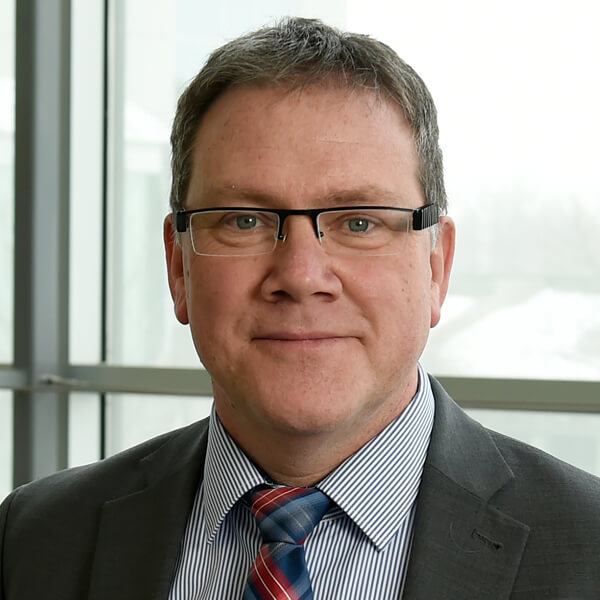
Volker Gerdts
CEO, Vaccine and Infectious Disease Organization—International Vaccine Centre
July 14, 2020 • 32-min listen
Are our cities a reflection of the people who live in them? Are they built for people? As our economy starts to recover, will our cities? Or are these sprawling urban jungles built for a different time, retrofitted as our needs have changed?
Is now a good time to rethink the city?
Our guest this episode, Jennifer Keesmaat, is passionate about creating places where people flourish. She was Toronto’s chief planner for five years and has been named one of the “most powerful people in Canada” by MacLean’s and one of the “most influential” by Toronto Life. Currently, she’s the CEO of The Keesmaat Group, senior-level urbanists working to find solutions to some of the most pressing challenges of our time.
She joins us to talk about how our cities will emerge from the pandemic, and how the changes we’re seeing can be important lessons in how we navigate our communities. We talk population density, resiliency, planning, and sudden changes we’ve had to make. What changes should we keep? We also talk about how the pandemic has exposed the weaknesses in our cities, especially for racialized and vulnerable communities.
Learn more:
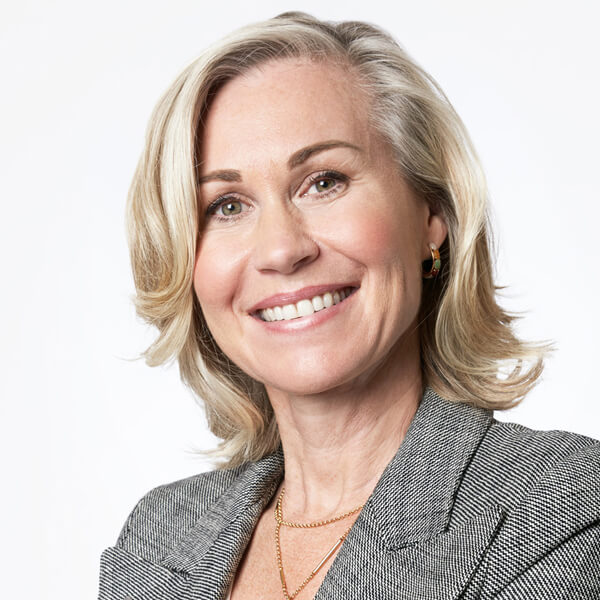
Jennifer Keesmaat
CEO, The Keesmaat Group; former chief city planner of Toronto
June 23, 2020 • 35-min listen
Millions have been relying on the Canada Emergency Response Benefit (CERB) these past few months. This has been an extraordinary response to an extraordinary time. But people concerned about fighting poverty are looking to draw lessons from the pandemic for the future. Discussion is growing around the creation of a universal basic income for Canadians.
This episode, the Honourable Hugh Segal, Canadian political strategist, author, commentator, academic, and former senator, joins us to talk about a guaranteed basic income for Canadians. Hugh has touted guaranteed basic income as a way to break families out of poverty for decades.
We talk about experiments with basic income from the past and the lessons he hopes we learn from programs created during the pandemic. Can governments seize this opportunity for leadership and create a new approach to helping the poor in Canada?
What do our economists have to say about universal basic income? Find out in Ask an economist.

The Honourable Hugh Segal
Canadian political strategist, author, commentator, academic, and former senator
June 16, 2020 • 45-min listen
Immigration is vital to Canada’s economic growth and competitiveness. The people we welcome fill the gaps in our labour market, bring valuable skills and experience, and have connections around the world. But they can face an uphill battle to have their credentials or experience recognized in Canada.
This episode, Shamira Madhany, Managing Director, Deputy Executive Director, World Education Services, talks to us about immigration during the pandemic, where new Canadians are working and where they want to be working, the role of immigrants in rebuilding our economy, and provides a path forward to recognizing skills the experiences of new Canadians.
Learn more:
- Are Intentions to Immigrate to Canada Changing in the Face of COVID-19? (WES)
- #ImmigrantsWork: Building Immigrant Inclusion into Business Recovery Plans (WES)
- Who is Succeeding the Canadian Labour Market: Predictors of Career Success for Skilled Immigrants (WES)
- Beyond Academic Credentials—Toward Competency-Informed Hiring (WES)
- COVID-19 Derails Canadian Immigration (RBC Economics)
- Implicit Association Test (Harvard)
- Can’t Go it Alone: Immigration Is Key to Canada’s Growth Strategy (CBoC)
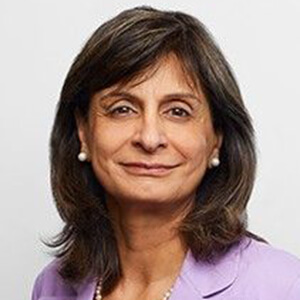
Managing Director, and Deputy Executive Director, World Education Services
June 9, 2020 • 36-min listen
The territories face special challenges when it comes to dealing with an outbreak. Many communities are remote or isolated, and emergency health care is often far away. On this episode of Bright Future, The Honourable Ranj Pillai, Deputy Premier of Yukon, shares his personal experience with COVID-19 and how it helped shape the territory’s response. He talks about the territory’s labour shortage before and during the pandemic, tourism, the economic outlook for the region, and Northern entrepreneurship.
Learn about Yukon’s COVID relief efforts here:

Deputy Premier of Yukon
June 4, 2020 • 40-min listen
Health columnist André Picard joins us to talk about what we can expect as we move to the next phase of the COVID-19 crisis: the slow reopening. What lessons have we learned so far? And will we remember them? How will we bring social distancing to the workplace? And what are the “bright spots” in this—the changes that are happening that have been a long time coming.
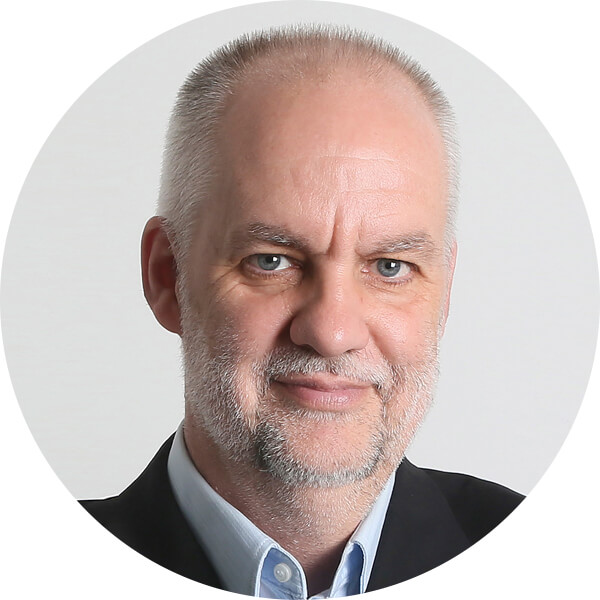
Health columnist, The Globe and Mail
May 28, 2020 • 29-min listen
Stéphane Hamel is a leader in the digital marketing, analytics, and privacy world. He has been working in it and speaking about it for over 20 years. In this episode, he talks to us about privacy, consent, trust, and what it will take for Canada to get ahead of COVID-19.
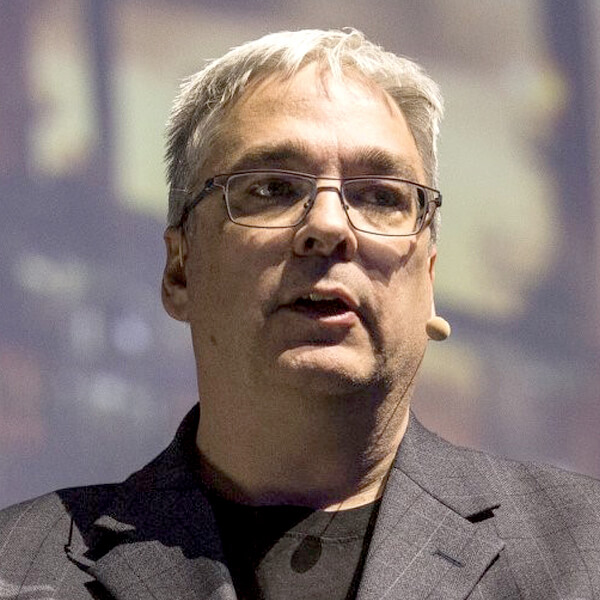
CEO & Founder, Immeria Consulting Services Inc.
May 21, 2020 • 38-min listen


